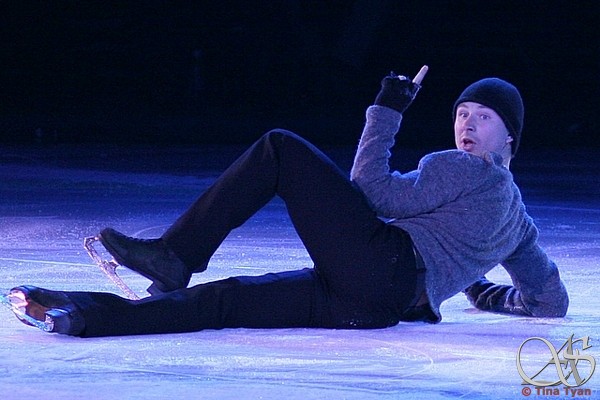Alexei Yagudin: "I don't like when people want to stop the quads because of injuries"
February 27, 2018
By Titanilla Bőd (Új Szó)
Photos © Tina Tyan
Legendary Alexei Yagudin will be one of the biggest stars of Ilia Averbukh's show today in Bratislava, Slovakia. As part of the promotion of the show he was available for a phone interview.
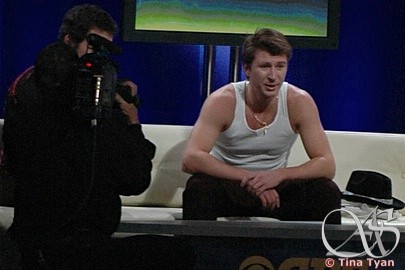 What are your memories of Bratislava? For many fans the most memorable performance is definitely your Gladiator long program at the European Championships in 2001.
What are your memories of Bratislava? For many fans the most memorable performance is definitely your Gladiator long program at the European Championships in 2001.
I do remember that competition. When there are two or three years before the Olympics, the situation is simple; you have time to create something, to change something in your life or sports career. But when you have so little time to fix a problem or a program, the competition is more emotional. Europeans in Bratislava was in the pre-Olympic season, and that meant that it would show us if we needed to change something or not. What I remember is the support of the audience in the arena. I actually remember each competition I participated in during my eligible time. It didn't matter if I won or lost, each competition had its specialty. It's like when you are a child and you get candy (like Kinder egg), you always search for the surprise inside. Bratislava was a real surprise and I was happy to be there. I was not on home turf, but I definitely felt the support. People's applauses gave me confidence when I competed.
That time you only got silver, but many people cried when you finished that program and you cried on the ice, too. Why was that moment so special?
For athletes, support from the fans means a lot. Athletes live not only for medals, but for the people by whom they are surrounded. Now, at 37, it doesn't matter if I won a silver or a bronze medal, it was just part of my life. I'm really happy that I have a chance to come back to a place where I really felt people's support and love.
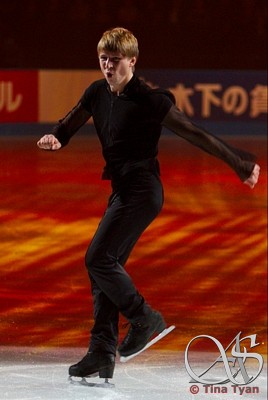 And now you are coming back with a show - what will you offer the crowd this time? What can we look forward to?
And now you are coming back with a show - what will you offer the crowd this time? What can we look forward to?
These days there are a lot of champions in professional sport, and one year one person wins, the next year there is another winner, while in the third year there is someone else again. In the past there were several people who'd been winning over the years. In our show we bring the concept of something new, but we will also bring the heart of the past, and we operate with all the modern constructions of an ice show, to bring something new and specific to the audience. What I can say with a hundred percent certainty is that whatever Ilia Averbukh does, it has a quality stamp. He has been in this business for 13-14 years, and it doesn't matter if it's a New Year's show for kids, or a really deep and dramatic concert for older people, his work always means quality. He is a professional and he works with professional people. The audience can be sure they will get a hundred percent pleasure and memories for the future.
Your wife, Tatiana Totmianina, is also part of the show. How is it to share this experience with her?
Even if Tatiana is skating in pairs and I do singles, we are always together and work as a team. If I work with Tatiana or Ilia, we work as a team. That's different from Europeans in Bratislava in 2001, because back then I didn't really care how others competed, I was only concentrated on how I would compete and which placing I would get. Right now the goal is completely different: to be perfect in my own performance, but also to be perfect as a team. Now teamwork is my priority.
You've always been an artist on the ice, and at the Olympics in Salt Lake City in 2002 you got four perfect 6.0s for your Man in the Iron Mask long program. What is your secret, how can you create this very special atmosphere?
For me figure skating is not just about the technical side, the jumps. When I was eligible and skated just for myself and my coach Tatiana Tarasova, it was my goal to make those jumps perfect. But now our goal is to make a quality show, that's what we are looking for.
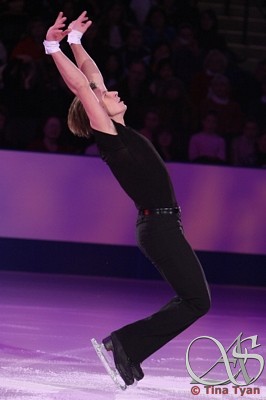
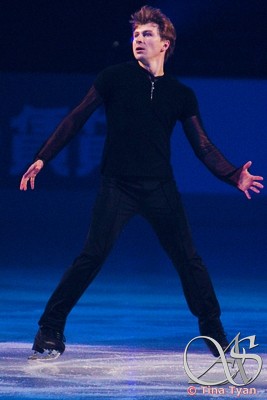
Do you still follow figure skating competitions?
A little bit.
What do you think, is there less room for artistry in figure skating now under the new judging system?
The rules have changed, the world has changed. Right now it's hard to compare what's happening on the world stage of skating to what happened 15-20 years ago, everything has changed so radically. I support the progress and I already predicted in the past that skaters would perform pretty much all the quads in their programs. That's what's happening right now. I'm sure skaters will do a jump with five rotations in a near future. The judging system has changed, but the race for better quality and results doesn't stop.
But this is very demanding on the body, for example at Skate America two skaters dislocated their shoulders. You also had some serious problems with your hip; you even had to have a hip replacement.
And a lot of people say: "Stop the quad jumps; stop the quad throws in pairs!" However, injuries will happen. We need to progress, we have to improve and learn something new. I don't like when people want to stop the quads because of injuries. Injuries will always happen in sports. But my hip problems weren't caused by the jumps [they were congenital - ed].
You disclosed in an interview that even as a child you experienced hip pain. How hard was that for you?
My hip is an example of an injury that didn't come only because of the progress in figure skating. I was born like that and I started having problems when I was little. The pain just grew and grew and grew until it was impossible for me to skate.
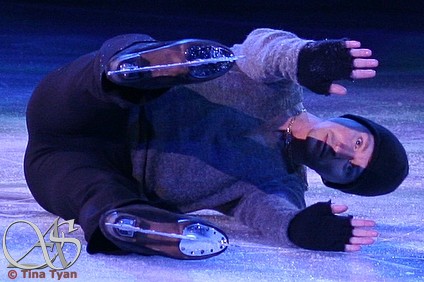 You are very popular in Russia and also in other countries; your picture is on covers of magazines even these days. Do you enjoy being popular?
You are very popular in Russia and also in other countries; your picture is on covers of magazines even these days. Do you enjoy being popular?
Whatever happens in our lives is our destiny to deal with, and popularity is part of our job. We work towards becoming known, so if people stop us on the street and ask for an autograph, that means we are moving in the right direction. But I really dislike when people cross the line and think they are better than someone else.
You are an Olympic family; both you and your wife are Olympic champions. What about your children? Do you direct them to sports?
My youngest daughter is just two years old, so she is too young for any sports. But the older one is already eight, and she does rhythmic gymnastics, dancing, swimming and other sports, too. I don't force her into skating like my parents did. If she wants to skate more, I will let her to skate more, but I will never force her to do something she doesn't like. Tatiana and I would prefer that our children put education first, so they have the opportunity to become well-educated and social people. This is our number one task.
How much time do you spend on the ice now?
I do skate a lot, because Ilia puts on more than two hundred shows a year. This life is different from the life I used to have as a competitor. In our shows, the challenge is to make each person in the audience enjoy the show. It's not about doing or not doing a quad, but for us the main goal is that every single person who bought a ticket will enjoy the show.
